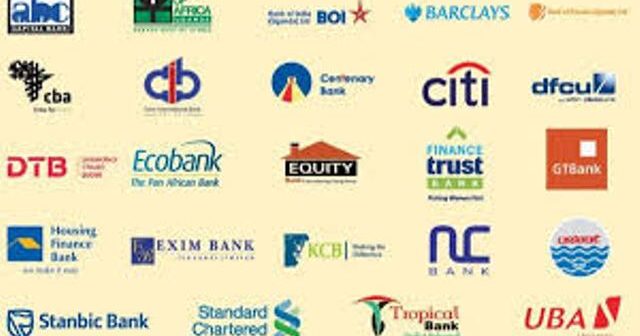Several bosses in commercial banks in Kampala and other financial institutions are sweating plasma following the October 7th, 2020 ruling by the High Court Commercial Division in a case filed by tycoon Hamis Kiggundu and Diamond Trust Bank, in which caused outlawed syndicate lending.
The panic among commercial banks executives arose after High Court justice Henry Peter Adonyo ruled that DTB Kenya (DTBK) acted illegally in lending money to Ham Enterprises and the ruling sent a precedent major implications on syndicate lending in Uganda’s economy.
The contentious ruling emanated from a lengthy suit in which Ham Enterprises sued Diamond Trust Bank Uganda and DTB Kenya for pilfering money from his accounts because of a Shs 39.7Bn loan which the businessman acquired to facilitate his businesses and serviced the loan, but the banks’ officials went ahead and illegally deducted billions of shillings from his account over a period of 10 years.
Ham had acquired the money in four tranches: $6.2m, $3.2m, $458,604 and Sh2.8b from both DTB Uganda and DTB Kenya between February 2011 and September 2016.
In 2018, the loans were consolidated and were to run for five years, ending August 23, 2023, until Ham discovered that the Banks’ officials had been conducting illegal transactions on his accounts and decided to close them.
In his ruling, Justice Adonyo stated that DTB Kenya didn’t have the license from Bank of Uganda as provided for under the Financial Institutions Act 2004 to transact syndicate lending with DTB Uganda, hence their actions were illegal, null and unenforceable by law.
Through his lawyer, Fred Muwema, Ham argued that DTBK was carrying out illegal banking business in Uganda by lending money to the first Plaintiff, Ham Enterprises, an accusation DTB was found guilty of.
The tycoon also stated that Diamond Trust Bank Uganda was “facilitating and abetting the illegal conduct” of Financial Banking Business for DTB Kenya in Uganda contrary to the Financial Institutions Act and well-knowing that it was and still is illegal.
In his verdict, Justice Adonyo also faulted DTB Kenya for appointing its counterpart in Uganda to collect the loan facility from Ham Enterprises without fulfilling the set legal requirements that would have facilitated the same due process to be undertaken, describing the appointment of agents as “illegal, unethical and breach of trust.”
He also stated that; “The Act contravened Financial Institutions Regulation number 5 and the first respondent (DTB Uganda) is culpable of breaking the law and is penalized for taking part in an unauthorized transaction.”
Other Banks Likely To Be Affected
The Commercial Court’s ruling that syndicated loans are illegal has since created a cloud of uncertainty around the financial future of several commercial banks that have been practicing syndicate lending.
We have established that Cairo Bank Uganda’s top executives called a crisis meeting on Wednesday evening to discuss the ramifications of the Ham Vs DTB ruling and the impact it poses on their loan portfolio.
It should be noted that Uganda banks’ syndicated loans amount to over Shs 3tn but if written off, the financial sector could collapse, which would inevitably sink the economy.
Shortly after the ruling, Cairo Bank management said in a note to its stakeholders that, “The judgement has huge ramifications for the industry, for syndication, for Uganda as investment destination and capital flows.”
The note reads in part thus: “The Executive Directors had called to request us to URGENTLY assist with info before 5 pm. Info requested is value of syndicated loan portfolio at risk because of this judgement. This includes inter-company or group, or other independent non-resident syndicate partner funding. It includes both direct loan facilities as well as off balance sheet e. G LC lines, Guarantees etc.”
However, a senior banker who spoke to this website on condition of anonymity said that; “The implications of the ruling on the banking industry would be massive, since there are at least 7 foreign banks in Uganda with huge market share that do syndication with parent balance sheets quite frequently.”
Giving Stanbic Bank as the closest example, the banking executive said that it is the only financial institution in Uganda which can lend up to $60m to one borrower and can only achieve this through syndicate lending.
“For example, of the $300m Stanbic lent to government of Uganda a couple of months ago, $200m was booked in South Africa,” the official added.
On whether syndicate lending is regulated by the Banking Act, the expert noted that it is common practice in the banking sector and governed by a syndication agreement between the local bank and the foreign parental arm.
What Is a Syndicated Loan?
A syndicated loan, also known as a syndicated bank facility, is financing offered by a group of lenders—referred to as a syndicate—who work together to provide funds for a single borrower. The borrower can be a corporation, a large project, or a sovereign government. The loan can involve a fixed amount of funds, a credit line, or a combination of the two.
Syndicated loans arise when a project requires too large a loan for a single lender or when a project needs a specialized lender with expertise in a specific asset class.
Syndicating the loan allows lenders to spread risk and take part in financial opportunities that may be too large for their individual capital base.
Interest rates on this type of loan can be fixed or floating, based on a benchmark rate such as the London Interbank Offered Rate (LIBOR). LIBOR is an average of the interest rates that major global banks borrow from each other.



